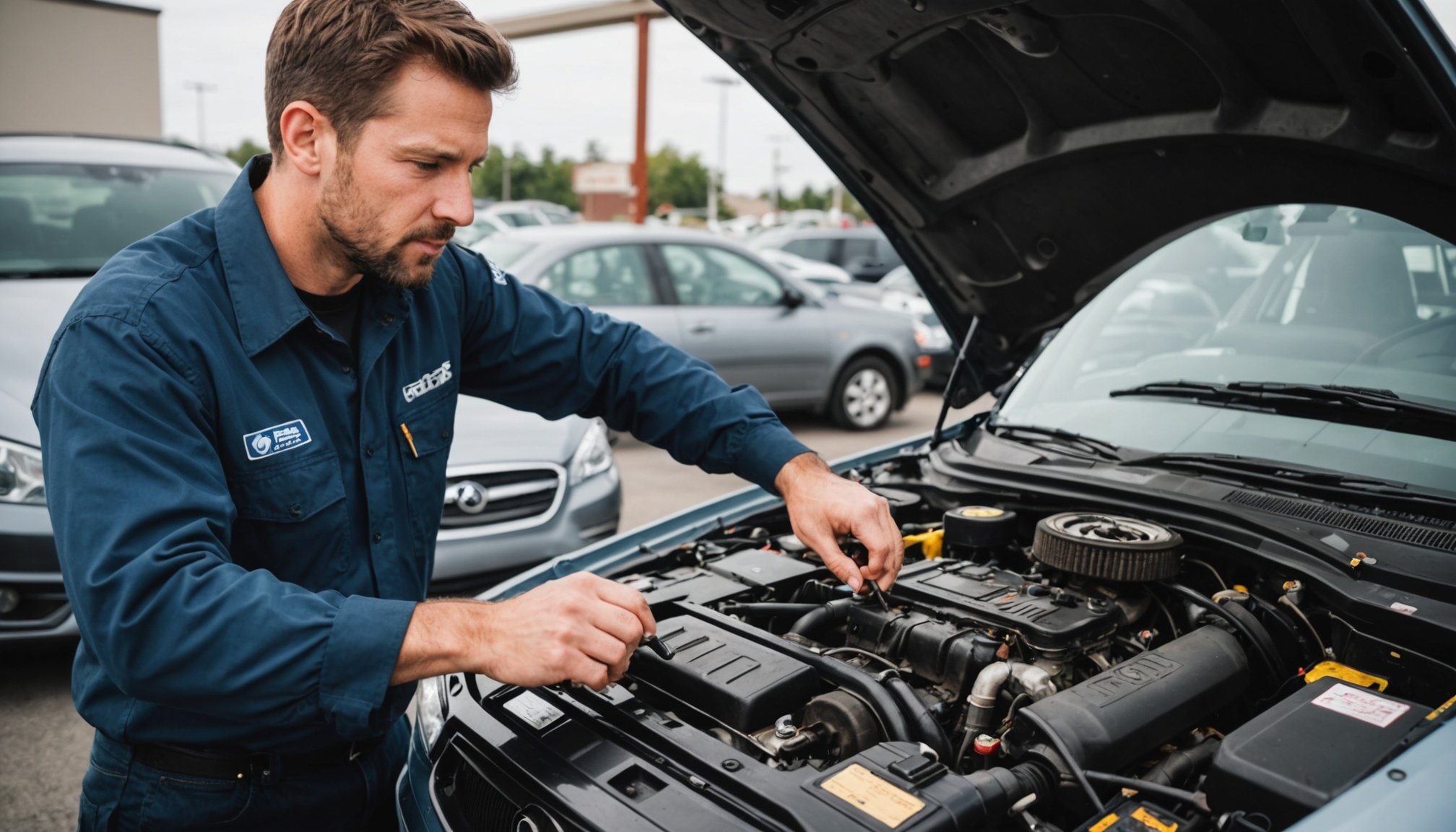Purchasing a used vehicle can be a daunting task. You want to find a reliable car that fits your budget, but the risk of hidden problems can make the buying process nerve-wracking. Whether you’re a first-time buyer or you’ve done this before, knowing what to look for during your inspection can save you from costly repairs down the road. This guide will equip you with the essential knowledge to ensure your vehicle purchase is a smart one.
Understanding the Vehicle History
Before you even step foot at a dealership or meet a private seller, you need to familiarize yourself with the vehicle’s history. A thorough history report can reveal critical information about the car’s past, including accidents, title issues, and previous ownership. Check services like Carfax or AutoCheck can provide these reports, which are invaluable tools for buyers.
Also read : What are the most important features to consider when choosing a family car?
When reviewing the history report, pay close attention to any accidents reported. A car that has been in a serious crash may have underlying issues that could lead to costly repairs later. Look for the number of previous owners as well; a vehicle with multiple owners in a short period can signal trouble. What’s more, ensure that the title is clean, meaning it has not been salvaged or rebuilt.
Understanding the history of the vehicle can also prepare you for potential insurance costs. Some cars may have a higher likelihood of being involved in accidents, which can drive up your insurance premiums. Therefore, knowing the history is not just about the present; it’s also about the future costs associated with owning the vehicle. Remember, a well-documented history could save you from making a regrettable purchase.
In the same genre : How can you protect your car’s paint job from scratches and environmental damage?
Conducting a Thorough Inspection
Once you’ve secured the vehicle history report, it’s time to inspect the car yourself. Inspection is a critical step that should never be overlooked. You should examine both the engine and the body of the vehicle carefully.
Start with the exterior. Look for any signs of rust, dents, or mismatched paint. These could indicate previous repairs that might not have been done correctly. Then, proceed to the interior. Check the upholstery for wear and tear and ensure that all features, such as windows, doors, and locks, function correctly.
Next, pop the hood and take a close look at the engine. Look for leaks, corrosion, or any signs of damage. A well-maintained engine will have a clean appearance with no visible oil leaks. Additionally, if you have the opportunity, take the car for a test drive. Pay attention to how the vehicle handles, any unusual noises, and the responsiveness of the brakes. You should feel confident that the car performs well before making a purchase.
If you’re not mechanically inclined, consider having a trusted mechanic conduct a more detailed inspection. This step may incur a small fee but could save you a significant amount in future repairs. Remember that an informed buyer is a smart buyer.
Negotiating the Price
Once you’ve inspected the vehicle and are satisfied with its condition, the next step is negotiating the price. Knowing how to negotiate can make a significant difference in your overall expenditure, potentially saving you hundreds of dollars.
Start by researching the market price for similar vehicles. Websites like Kelley Blue Book or Edmunds provide valuable insights into the average prices of used cars based on make, model, year, and condition. This information will give you leverage during negotiations.
When you meet with the seller or dealer, be upfront about any concerns that arose during your inspection. If you noticed a few minor issues, use those as a basis to negotiate a lower price. For example, if the tires are worn out, mention that you’ll need to invest in new tires soon, which should reflect in the price.
Also, don’t hesitate to ask for a warranty. Some dealers offer limited warranties on used vehicles, which can give you peace of mind. A warranty can cover certain repairs if they arise shortly after your purchase. When negotiating, be clear about what you want. Remember, confidence is key. If the seller is unwilling to budge, be prepared to walk away. There are plenty of cars on the market, and finding the right deal is essential.
Understanding Warranty Options
When purchasing a used car, understanding the warranty options available can greatly impact your ownership experience. A warranty can protect you from unexpected repair costs, so knowing what’s available is crucial.
There are generally two types of warranties: the manufacturer’s warranty and extended warranties. Most used cars still fall under the original manufacturer’s warranty, which may cover specific parts or repairs for a limited time. If the car you’re considering is still under this warranty, ensure you understand what it covers and how long it remains valid.
Extended warranties are additional protection plans offered by the dealer or third-party providers. They can cover various components of the vehicle, but the coverage can vary significantly between providers. Before purchasing an extended warranty, read the fine print carefully. Understand what is covered, what is not, and the process for making a claim. Some warranties may have a deductible or require you to service the vehicle at specific locations.
In some cases, sellers may try to upsell you on warranty packages. Weigh the costs versus the potential benefits. While a warranty can offer peace of mind, it may not always be necessary for older vehicles, especially if you’ve done your due diligence during your inspection.
In conclusion, purchasing a used vehicle requires careful consideration and thorough preparation. By understanding the vehicle’s history, conducting a detailed inspection, negotiating the price, and evaluating warranty options, you equip yourselves with the knowledge to make an informed choice. Each step is critical in avoiding future headaches and costly repairs. Remember, buying a car is not just about getting a good deal; it’s about ensuring you’re making a wise investment. Taking the time to do your research and being vigilant during the purchasing process will pay off in the long run.










